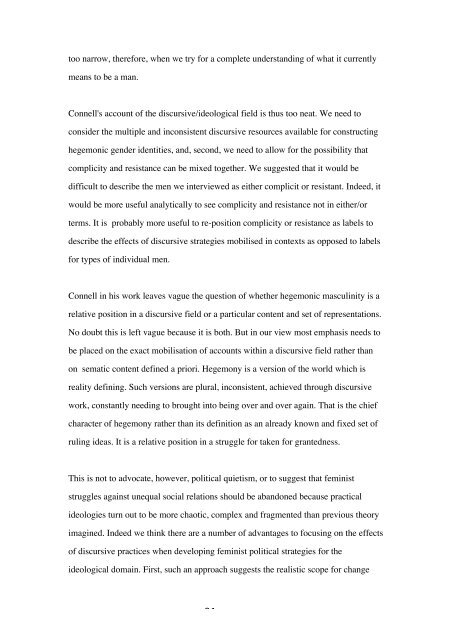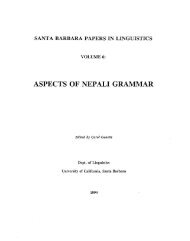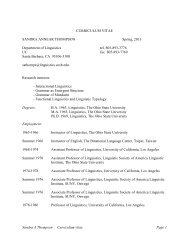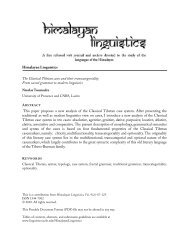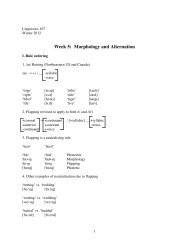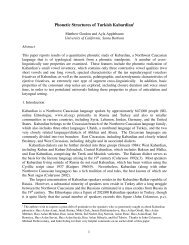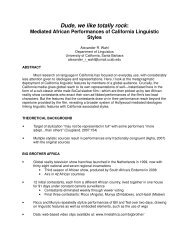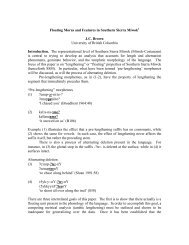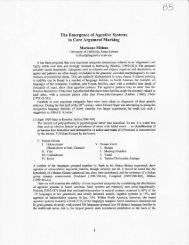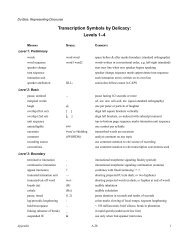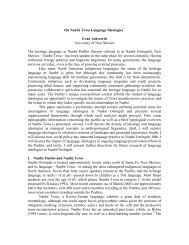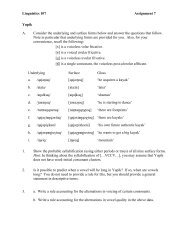Negotiating Hegemonic Masculinity: Imaginary ... - UCSB Linguistics
Negotiating Hegemonic Masculinity: Imaginary ... - UCSB Linguistics
Negotiating Hegemonic Masculinity: Imaginary ... - UCSB Linguistics
You also want an ePaper? Increase the reach of your titles
YUMPU automatically turns print PDFs into web optimized ePapers that Google loves.
too narrow, therefore, when we try for a complete understanding of what it currently<br />
means to be a man.<br />
Connell's account of the discursive/ideological field is thus too neat. We need to<br />
consider the multiple and inconsistent discursive resources available for constructing<br />
hegemonic gender identities, and, second, we need to allow for the possibility that<br />
complicity and resistance can be mixed together. We suggested that it would be<br />
difficult to describe the men we interviewed as either complicit or resistant. Indeed, it<br />
would be more useful analytically to see complicity and resistance not in either/or<br />
terms. It is probably more useful to re-position complicity or resistance as labels to<br />
describe the effects of discursive strategies mobilised in contexts as opposed to labels<br />
for types of individual men.<br />
Connell in his work leaves vague the question of whether hegemonic masculinity is a<br />
relative position in a discursive field or a particular content and set of representations.<br />
No doubt this is left vague because it is both. But in our view most emphasis needs to<br />
be placed on the exact mobilisation of accounts within a discursive field rather than<br />
on sematic content defined a priori. Hegemony is a version of the world which is<br />
reality defining. Such versions are plural, inconsistent, achieved through discursive<br />
work, constantly needing to brought into being over and over again. That is the chief<br />
character of hegemony rather than its definition as an already known and fixed set of<br />
ruling ideas. It is a relative position in a struggle for taken for grantedness.<br />
This is not to advocate, however, political quietism, or to suggest that feminist<br />
struggles against unequal social relations should be abandoned because practical<br />
ideologies turn out to be more chaotic, complex and fragmented than previous theory<br />
imagined. Indeed we think there are a number of advantages to focusing on the effects<br />
of discursive practices when developing feminist political strategies for the<br />
ideological domain. First, such an approach suggests the realistic scope for change<br />
31


